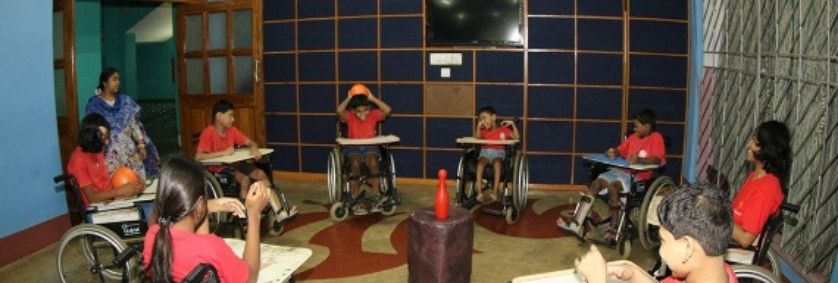Our Blog

23May 2021
What Social Inclusion-Imparting Skills do NGOs Follow for Empowering People with Disabilities?
Social Inclusion skills are necessary for people with disabilities to forget their discrepancies and maximize their abilities with the help of the NGO executives.
Many people are born with certain disabilities, while a number of people undergo rough misfortunes and pains which result in disabilities. Nevertheless, they are not ready to stoop down to life easily. Rather they challenge their disabilities and with the assistance of the NGO volunteers, they strive to create their own space, identity, and recognition.
Both money and skills are necessary for a happy life. While the volunteers of NGOs help them with their education at the earlier stages, both academically and technologically, in the later phase the volunteers train them with the necessary skills to seek employment, or else to survive by running a small-scale business on their own. In short, the NGOs help them to acknowledge the people with disabilities of their rights - to be financially independent.
People with disabilities might have special needs, but above all, they have abilities. Hence the NGOs working with people with disabilities in India, are following the process of social inclusion.
What is Social Inclusion?
Social inclusion denotes the process to ensure everyone receives equal treatment and opportunities, irrespective of their disability status, abilities as well as special care needs. Thus, including the people with disabilities in the mainstream and providing them with equal chances to work in a healthy environment is important.
Thanks to the efforts taken by the NGOs, many donators have extended their helping hands to support the people with disabilities to help them learn the necessary skills they yearned to learn.
1. Inclusive Education For Imparting Education Skills
The education skills are taught at their primary stages - the students with disabilities grasp these skills in their early school days. They learn the alphabet, ways of communication, the basics of mathematics, problem-solving, and learn the method for reasoning to make themselves literate. All these skills are essential in different fields of their works.
2. Vocational, Technical and Professional Skills
People learn these skills through special educations for doing certain jobs. It could be weaving or basket making, metal works, carpentry, tailoring, shoemaking, baking, and more. They are even taught advanced technical skills, such as engineering, medicine, computer technology, and physiotherapy which are professional. These high-level professional skills need higher education levels in technical institutions. They are formally trained and given an official certificate, so they have the right to equal opportunities.
3. Business Skills
Entrepreneurial skills are essential when a person has to work in the field in need of successful money management, even it needs proper scheduling as well as administrative skills. There are more other aspects to be an entrepreneur, like business plan preparation, setting up achievable goals, conducting market analysis, making an assessment of the involved risks, and diligence in problem-solving. Literate people with a stable mind can acquire all these skills.
4. Core Life Skills
These skills involve one's attitude to the others along with his/her own life, the basic knowledge regarding the things going around, and the things integral to our life. Skills like how one can communicate with other people, the way he is presenting himself/herself to them at the time of adapting to varied situations, listening with attentive communication, thinking out of the box, proper discipline maintenance, and analytical thinking are even included under this category. Along with skills, more skills are necessary which makes them respectable.
The NGO executives can choose from many choices to take special care of people with disabilities. In the same way, the executives can cater to the people with special needs, and provide them with all the necessary tools so they can learn the necessary skills. With determining the important attributes, and with proper donations meant for their skill development. Thanks to the steps taken by the NGO executives, they can learn new skills, and in later life work towards solving their problems.
SHARE THIS
0 Comment(s)
Leave a Comment
Latest Articles
-
How NGOs Help Elevate The Condition Of PWDs?
18th Mar, 2024 -
The Role Of Community-Based Rehabilitation Program......
08th Mar, 2024 -
How NGOs For Disabilities In India Champions For I......
16th Feb, 2024 -
The Role Of NGOs In Development Of Children With D......
05th Feb, 2024 -
How The Changing Rural Education System Is Shaping......
12th Jan, 2024






